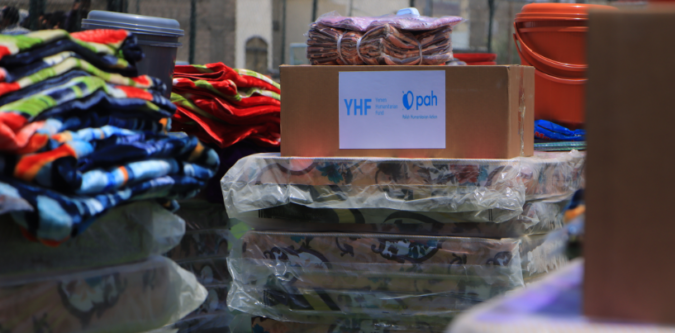The large population and the informal nature of the camps provide an environment in which many problems develop in parallel. In response to this difficult situation, the Polish Humanitarian Action (PAH) runs a complex project involving both direct aid and improved access to public services for people living in the camps in 2025.
In Ma’rib, many people who had to leave their homes do not have basic documents, such as identity cards or birth certificates. Without them, they cannot benefit from humanitarian aid or ordinary public services, such as health care or education. PAH’s research shows that more than 70% of families living in camps in this region do not have such documents. Therefore, as part of the project, we help people obtain them. As a result, they will no longer be overlooked during the distribution of aid and will have easier access to services that can save their life and health.
Many families in the camps in the Ma’rib region still do not have a safe roof over their heads or the basic necessities of life. To improve their situation, PHA will provide 246 non-food item (NFI) kits and 40 tents and build 130 transitional shelters to provide families with greater security and resilience against future crises.
Aid will go to the most vulnerable – flood-affected families, newly displaced people, widows and single mothers, the elderly, people with disabilities and members of marginalised communities. The new shelters will be adapted to the needs of people with disabilities (e.g. through ramps or wider doors) to provide everyone with equal and decent living conditions.
Thanks to thorough analyses of needs and close cooperation with the local community, our response is swift and targeted and addresses the real challenges of camp residents.



